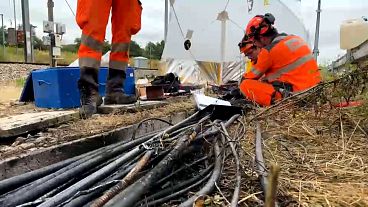SYDNEY (Reuters) - Football Federation Australia (FFA) repeated calls for increased government funding to boost and improve facilities on Friday after releasing a report showing participation rates in soccer had risen by 13 percent in the past year.
The FFA, in their annual census, highlighted a "A$500 million (272 million pounds) facilities funding gap" that needed to be addressed after participation numbers grew to 1.8 million.
Further development of the sport was being "held back by inadequate facilities", it said.
"We are calling on government to join with us to deliver improved facilities and programs which can help improve participation even further, drive gender equality, integrate new communities and deliver strong preventative health outcomes," FFA Chief Executive David Gallop said in a statement.
Last August, Gallop asked central and state governments to contribute A$100 million to a 'fighting fund' to help develop more facilities.
Research had showed that in Australia's two most heavily populated states -- Victoria and New South Wales -- there were not enough pitches for the expected growth in numbers, with clubs already having to cap registrations, particularly among young girls which was an area FFA wanted to target.
"Our women and girls participation base continued to increase and provide one of the greatest growth opportunities for football," Gallop added.
"International tournaments including the 2018 AFC Asian Cup, women's Cup of Nations and Female Football Week have played a key role in driving new women and girls to our game, now boasting over 141,000 registered participants."
The release of the annual census came two days after FFA reaffirmed their commitment to bid for the 2023 Women's World Cup.
Australia's central government had committed A$5 million to the bid process, with the final documents due at world governing body FIFA by early October with a decision on the host expected in March 2020.
(Reporting by Greg Stutchbury in Wellington; Editing by Peter Rutherford)












